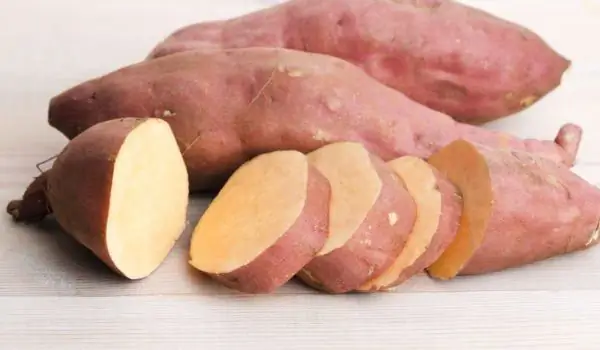2025 Author: Jasmine Walkman | [email protected]. Last modified: 2025-01-23 10:18
Potatoes are the new currency in Yakoruda - one of the poorest home municipalities. In order to have something to put on their table, people in these lands are increasingly running to exchange natural products, BTV News reports.
One of the supporters of this practice is Mustafa. He spends hours by the roadside, hoping that one of the passengers will stop to buy environmentally friendly products from him.
If people can't offer him money, he agrees to barter. Ultimately, this would also help to diversify the family menu. The man offers honey, jams, yellow cheese, cheese, potatoes and other goods.
Potatoes grown in the Yakoruda region are popular for their quality throughout Bulgaria. Chefs and gourmets describe them as extremely tasty, sweet and filling. In the market, they become the main currency.
Sugar for potatoes, maybe, yes, Mustafa agrees.
I prefer to sell potatoes, but in the countryside barter goes, says Ahmed Uruch.
He says that potatoes are exchanged for sugar, flour, fodder, oil and other essential household products.

This year, at least for now, a kilo of potatoes is offered at a price of forty cents, which encourages traders. Last year, however, their value was twice as low. To secure a kilo of sugar, the locals had to part with a whole sack of potatoes.
Other people from the Yakoruda region also share the barter they do. For example, Cemile Kyoseva admits that she replaces the feed harvest for the cow.
Otti has no money. People have nothing to want, mine and sugar, the woman admits.
Residents of this area explain that this has been the case here for years. Unemployment is high, which is why growing potatoes has become a characteristic livelihood.
Families harvest very large crops. Of course, they keep them for themselves, but the others sell to buy eggs, oil, salt, flour. If they fail, however, their hope is in barter.
Recommended:
Culinary Traditions In The Lovech Region

The Lovech region, famous for its mountain views and the beautiful winding curves that form the Osam and Vit rivers, is also famous for its culinary traditions, which have largely survived to this day. Based not only on the natural resources of the region, but also on the faith of the locals, they have deep roots and can hardly be forgotten.
Growing Potatoes Sweet Potatoes

Sweet sweet potatoes are much more dietary and useful than ordinary potatoes. For some people they are a delicacy, and for others part of the daily menu. This type of potato originates from Central America. Gradually, sweet potatoes became very popular because they were distributed by Spanish merchant ships in the Philippines and North America, and by the Portuguese in India, South Asia and African countries.
A Man From Smolyan Region Makes Cheese Using 5-century Technology

A 60-year-old man from the Smolyan village of Borikovo has been making cheese using five-century technology. Cheese master Salih Pasha comes from a shepherd family and is familiar with the secret of the specific cheese from his great-grandfather.
Black Pepper Was A Currency In Ancient Greece

There is almost no recipe in which not a pinch of black pepper is added. It is the most spicy and fragrant compared to other varieties. It can be found whole, crushed or ground. The homeland of black pepper is India. There he played a key role.
Salt Was The Currency Of Abyssinia

There are many interesting facts about salt. For example, in Abyssinia, salt has been a currency and a major currency for centuries. Salar de Uyuni, the world's largest dried-up salt lake, measuring 4,000 square miles in Bolivia, becomes a mirror when there is a thin layer of water on its surface.

